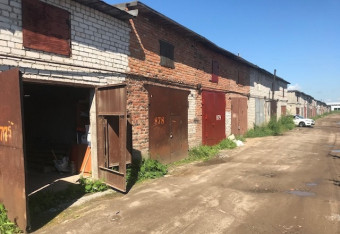Land privatisation
Land privatisation is the process of transferring land plots from state or municipal ownership to private ownership of citizens, either free of charge or for a fee. This procedure is regulated by the Land Code of Ukraine, laws on local self-government, as well as special regulations that establish the procedure for transferring land for various purposes: residential, gardening, farming, commercial, etc.
Land privatisation covers a broader context than simply registering a specific land plot. It is about the realisation of the constitutional right of citizens to land that they use or have a legal right to use. Such land may be under a house, be part of a household plot, be used as a garden, share, garden or summer cottage plot, etc.
Who is entitled to privatise land
Not all citizens are eligible for free privatisation. The law defines the categories and scope within which free transfer of land is permitted:
- Ukrainian citizens who already use a land plot on the basis of a council decision, state act or lease agreement.
- Persons who have obtained the right to land in accordance with the decisions of local self-government bodies.
- Combatants, war veterans, and persons with disabilities may have additional privileges regarding area or priority.
Maximum areas of free privatisation by intended use
General rules for free transfer are established according to intended use:
- Up to 2 hectares — for personal farming.
- Up to 0.12 hectares — for the construction of an individual residential building in a village.
- Up to 0.10 hectares — for residential development in a city.
- Up to 0.15 hectares — for gardening.
- Up to 0.01 hectares — for the construction of a garage.
These areas are not cumulative, but can be used separately — for each type of intended use. This approach allows citizens to exercise their rights within the limits of their specific needs, without exceeding the limits permitted by law.
How the land privatisation procedure works
The process of registering ownership of a land plot involves several mandatory steps. It includes both administrative actions and the preparation of special technical documentation. All these steps are necessary to secure ownership rights in the state register. Below is a general procedure:
- Submission of an application to the local government or executive authority (depending on who owns the land).
- Consideration of the application and granting of permission to develop documentation.
- Ordering technical documentation or a land management project.
- Approval of the project by the relevant authorities.
- Obtaining the cadastral number of the plot.
- Approval of the documentation by the local council.
- Adoption of a decision on the transfer of land into ownership.
- State registration of ownership rights in the real estate register.
Each of these stages requires time, funds (for geodesy, preparation of technical documentation) and legal knowledge. The duration of the process is from 3 months to a year, depending on the specific circumstances. In case of refusal by the authorities, there may be delays or even the need for judicial protection of the applicant's rights.
Restrictions and exceptions to land privatisation
Not all types of land are subject to privatisation. There is a list of lands whose transfer is prohibited by law. Before submitting an application, you should carefully check whether your plot falls into the category that can be privatised. Most often, restrictions apply to the following types of land:

Nature conservation areas — nature reserves, wildlife sanctuaries, special-purpose forests.

Public infrastructure land — motorways, railways, embankments.

Land under administrative or defence facilities.

Disputed or encumbered plots of land that are subject to ongoing legal proceedings or seizure.
Before starting the procedure, lawyers advise checking the legal status of the plot and ordering an extract from the State Land Cadastre. This will avoid wasting time and money on preparing documentation that cannot be implemented.
Why you should consult a lawyer on land privatisation issues
It is possible to complete the process independently, but in many cases problems arise, ranging from refusals by authorities to documentation that does not comply with legal requirements. A lawyer will help you avoid mistakes, speed up the review of documents, and protect you from potential loss of the plot due to procedural shortcomings.
A privatisation specialist:
- Conducts a legal audit of the situation.
- Prepares applications, requests, and complaints.
- Accompanies the land management project order.
- Represents interests in the village, settlement, or city council.
- Monitors the compliance of technical documentation with legislation.
- Initiates appeals against illegal decisions or refusals.
A qualified lawyer will also help to correctly assess the risks associated with the privatisation procedure and form an effective legal strategy to achieve the desired result.
Frequently asked questions about land privatisation
Question
Can a land share be privatised?
Answer
Yes, but only after it has been allocated on the ground and assigned a cadastral number.
Question
How long does land privatisation take?
Answer
On average, 3–6 months, but in cases of appeals or delays in approvals, up to 12 months.
Question
How many times can you exercise the right to transfer land free of charge?
Answer
Once — for each of the purposes specified by law (residential development, gardening, personal subsidiary plots, etc.).
Question
Is it possible to privatise land if the documents for the right of use have been lost?
Answer
It is possible, but to do so, you must renew the documents or apply for a new plot to be allocated.
ConclusionLand privatisation is a complex but achievable legal procedure that grants full ownership rights to a valuable resource. Successful completion of the process requires a clear understanding of the requirements of the law, coordinated actions and careful documentation. If you want to save time and avoid risks, consult a professional lawyer. The Consultant team is ready to help you at all stages — from analysing the legal grounds to registering your property in the registry.








































